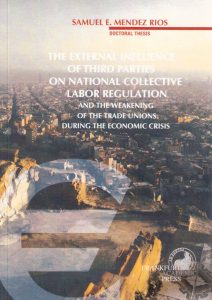 Daniel Deckers
Daniel Deckers
The Sign of the Grape and Eagle
A History of German Wine
The Ascent of VDP.Prädikatsweingüter
ISBN 978-3-86983-020-9
100 pages Softcover with Flaps 20,00 Euro
German Riesling was internationally renowned a hundred years ago. But the German wine has an eventful history: It contains wine and war, „blood and soil“ and Jewish wine traders, reconstruction and wine laws, the up and down of big names—and unwaveringly holding onto the ideal of great wines. Written by the wine connoisseur and FAZ-editor Daniel Deckers, the book describes the variable history of the German wine informatively and entertainingly. With numerous so far unpublished documents and pictures the book reveals an unique view on the history of German wine—for all experts and beginners!
A hundred years ago the German „Creszenzen“ competed with the popular French wines: the wine trade paid maximum prices and the auctions of the „natural wine“ from the Rheingau, the Palatine, and Rheinhessen and from Mosel, Saar and Ruwer were events of international standing. The two world wars lead to a rejection by the international custumers, that continued after the wars had ended. Today, German wine is renowned as in the early 20th century again. Inseperably linked to this success also is the history of the „Verband deutscher Prädikatsweingüter“ (VDP), that celebrated its 100th anniversary in 2010. „The Sign of the Grape and Eagle“ offers an intimate view on the history of German wine—for everyone who has always wanted to know more about the „good drop“.
Hugh Johnson:
„Daniel Deckers tells the story of an epic struggle by Germany‘s most ambitious and quality-conscious wine growers to establish the sort of hierarchy of quality that France enjoys—and that ensures the worldwide esteem of her best wines.“
Dr. theol. Daniel Deckers, born in Cologne 1960, obtained his doctorate about the Francisco de Vitoria’s doctrine of justice from 16th century at the Jesuit university Sankt Georgen in Frankfurt am Main. Since 1993, he is working as a politics-editor at the „Frankfurter Allgemeine Zeitung“, where he currently is responsible for the coverage on the catholic church in Germany. He took his passion for wine and its history as an opportunity to publish numerous articles. In 2003, he published „Zur Lage des deutschen Weins“ (About the location of German Wine) as editor and co-author.
Für eine Leseprobe HIER auf das Buch-Cover oben klicken, bitte!

 Daniel Deckers
Daniel Deckers